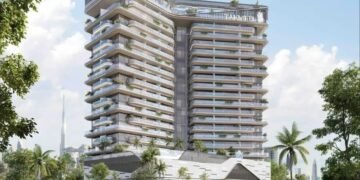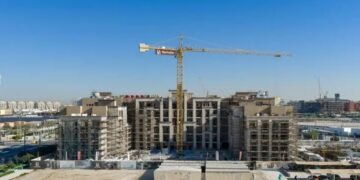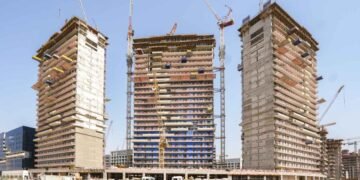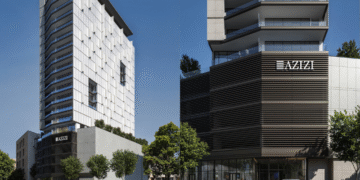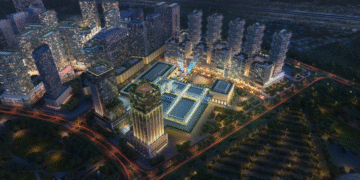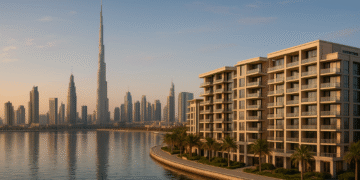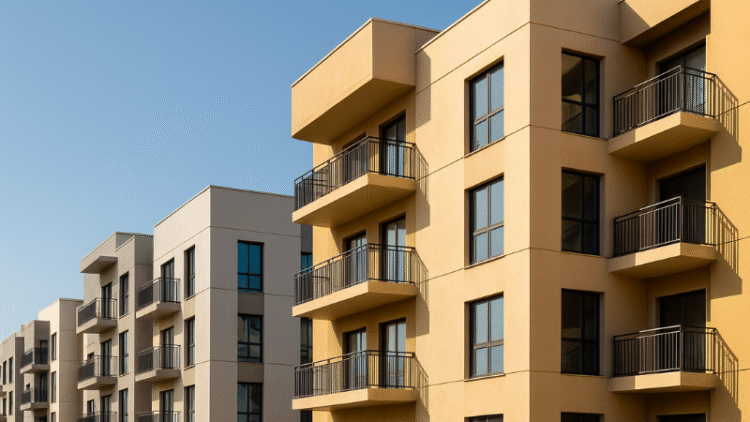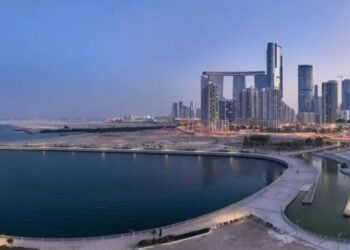DUBAI – The rental market across several Dubai neighborhoods is showing clear signs of cooling, especially for studio and one-bedroom apartments, as the effects of the recent crackdown on subletting and partitioning begin to reshape tenant dynamics. In traditionally affordable communities like International City and Discovery Gardens, rent levels have either stagnated or dipped slightly over the last two months, offering potential value buys for investors and relief for tenants
At International City, a long-time hub for affordable housing and often associated with informal subletting practices, rents for one-bedroom apartments remain flat, ranging between AED 48,000 to AED 55,000 annually, based on listings from Bayut. Studio units are now being listed around AED 28,000–AED 29,000, with reports from leasing agents suggesting that deals below those levels are increasingly available.
In Discovery Gardens, studios currently command annual rents between AED 48,000 and AED 60,000, while 1-bedroom units range from AED 50,000 up to AED 105,000. Over the past two months, rental prices here have seen a marginal drop of 1%, indicating a broader trend of stabilization or softening in the mid-market segment.
Industry experts believe this trend may intensify in the coming months.
“The crackdown on subletting and partitioning hasn’t fully reflected in market data yet, but we’re already seeing rents drop in more locations,” said Eima Hajimalan, Manager at GCP Properties. “Palm Jumeirah villas remain the exception. For the rest of the market, especially studios and one-bedrooms, prices are flattening.”
Impact of Subletting Ban on Rental Trends
Dubai authorities have stepped up enforcement against unauthorised subletting, a practice that had allowed landlords or tenants to split units into smaller spaces to accommodate multiple residents. With this being clamped down upon, many renters are now seeking legal, standalone properties.
However, experts note that the crackdown will not necessarily drive rents up in the short term. Instead, the shift is spreading demand across multiple neighborhoods — from Deira and Al Nahda to Al Quoz, Jebel Ali, and even neighboring emirates like Sharjah.
“There simply aren’t enough available units in the same areas where subtenants are being displaced,” noted a leasing agent. “So, demand is being redistributed across the city.”
Indian Investors Take Note: New Opportunities in the Affordable Segment
This shift presents a strategic opportunity for Indian investors eyeing Dubai’s real estate market. As more tenants move out of informal arrangements and seek proper rentals, demand for legal, affordable housing in established areas is expected to grow steadily.
For Non-Resident Indians (NRIs), this trend offers a twofold benefit:
- Lower Entry Price Points: With rents flattening and some price corrections visible, Indian investors can enter Dubai’s market at relatively favorable valuations, especially in communities that are popular with South Asian tenants.
- Stable Rental Demand: The ongoing movement of tenants into legally compliant rental units ensures a sustained demand pool, particularly in well-connected, affordable areas like International City, Al Nahda, and Discovery Gardens — all of which are well-aligned with Indian lifestyle preferences and budgets.
In fact, the renewed demand for compliant rental units is likely to boost long-term rental income for landlords owning smaller units, a segment that continues to appeal to mid-income expatriates.
Off-Plan Developers Offering Incentives Amid Cooling Sales
Meanwhile, the trend of price softening isn’t limited to the rental space. Several developers are now offering discounts, fee waivers, and easier payment plans on new off-plan launches to maintain momentum.
Although list prices remain relatively high in new launches, property agents report that incentives such as longer payment schedules and registration fee waivers are being offered more frequently, especially in the wake of cooling demand seen in Q2 and Q3 of 2025.
Also read: Dubai Residential REIT Posts AED622 Million Profit in H1 2025
According to Aakarshan Kathuria, CEO of RiseUp, “Over the past three months, rents for studios and one-bedrooms on new lease contracts have stabilized, with no significant hikes being observed. However, renewals are still seeing higher rents compared to last year.”
The Bigger Picture: Long-Term Growth Intact, But Market is Evolving
While the current rental environment might suggest a short-term cooling, Dubai’s real estate fundamentals remain strong. The government’s ongoing infrastructure investments, visa reforms, and new developments around affordable housing continue to support long-term demand, especially among mid-income expats and new migrants.
For Indian investors, especially those considering rental income as a primary motivation, this period of market correction presents an ideal window to enter or expand their portfolio.
Key Takeaways for Indian Investors:
- Studio and 1BHK rents in Dubai are stabilizing or falling, especially in key affordable neighborhoods.
- Enforcement against subletting is creating legal demand in established communities like International City and Discovery Gardens.
- Indian investors can leverage current prices and incentives to invest in rental properties with high tenant demand.
Long-term fundamentals of Dubai’s real estate market remain strong, despite short-term corrections.
Discover more from Invest Dubai Today - Dubai Realty Insights
Subscribe to get the latest posts sent to your email.






